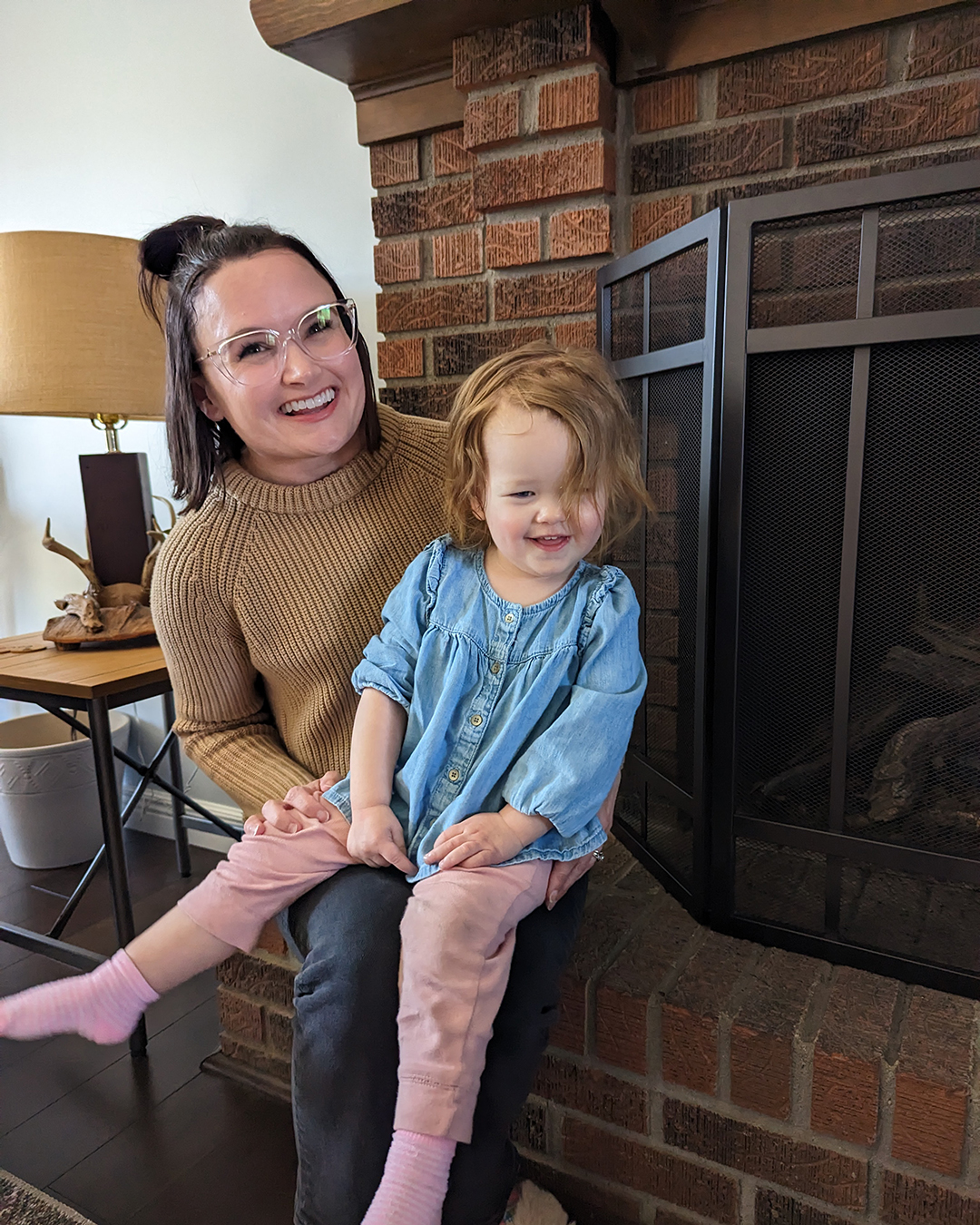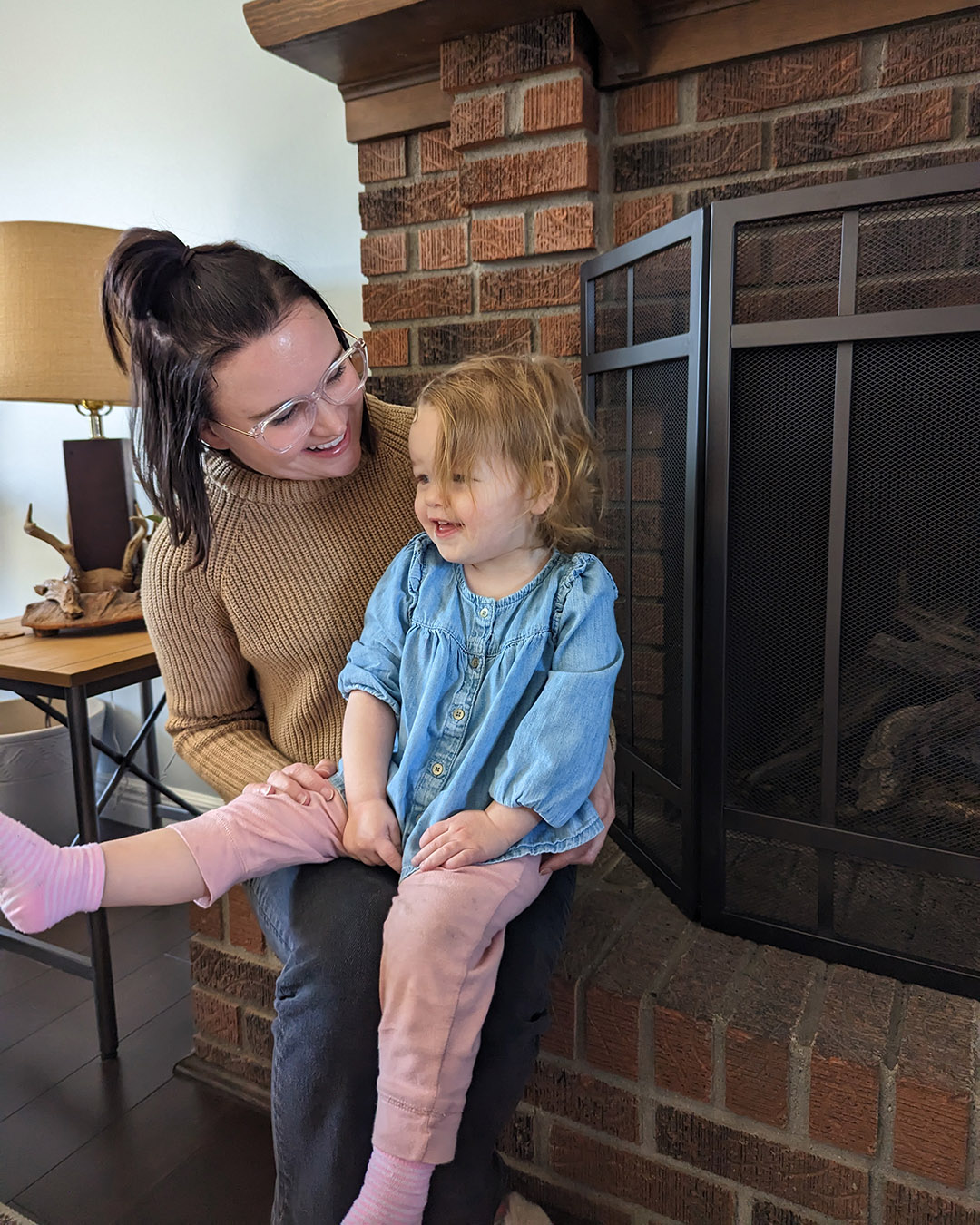
This might come as a shock to you (it did to me!), but I completely missed a round of my youngest daughter’s vaccines this year. Yes, I have been partnering with I Vaccinate for over a year to remind everyone of the importance of childhood vaccinations, and I completely forgot to get my own child her shots!
We had been in and out of the doctor’s office quite a bit around Ellie’s 15-month mark due to ear infections and eventually tubes. When I called to make Ellie’s 18-month appointment, I apologized for scheduling her a month late. And to my surprise, when I arrived and apologized again for being late for her 18-month shots, they informed me I’d never brought her in for her 15-month ones either! I was stunned and a little embarrassed. The sweet nurse said it happens and I learned that it was perfectly fine to do them all that day. In fact, it’s better to play catch up on vaccines like I did than to skip them altogether. If your little one has missed any of their scheduled immunizations, whether due to COVID or a parenting brain fart like my own, you can absolutely catch them up.

It’s not too late to catch up on missed or late vaccinations.
If you have forgotten to get your child the scheduled vaccines, you still can! Give your pediatrician a call and ask them for their recommendations to get your child caught up. They may suggest that you come quickly in to get them up to date, or they might recommend you catch up on vaccines at your next scheduled appointment.
However you get back on schedule, the key is to catch up. The WHO and CDC have reported that, partially due to missed vaccines during the COVID-19 pandemic, 40 million children missed a measles vaccine in 2021. We now have the lowest global coverage rates, at 81% of the first dose of the measles vaccine since 2008. This is an entirely preventable disease. But it’s only preventable if about 95% of the population is immunized. We have to do our part, not just for our own kids, but for others too. If you’ve missed a scheduled vaccine for your kiddo, make the call and get them in. It’s never too late.
Try your best to stay on schedule.
Though we may try our best sometimes the inevitable happens and we drop a ball or two while doing this whole parenting juggling act. But when it comes to vaccines, it is best to try to stay on schedule. Childhood vaccines are scheduled to defend children when they are most vulnerable to certain illnesses and it’s important to stay on track. And if you do fall behind, the CDC has provided a schedule to get caught up.
Vaccines are safe, effective, and protective.
When I realized I hadn’t gotten Ellie her scheduled immunizations, it didn’t even cross my mind to skip them. I knew I had to get her up to date as soon as possible because vaccines are the only truly safe and effective way to protect our kids and protect our family and community.
Vaccines are proven safe, being studied for 15 to 20 years before being administered to our kids and undergoing testing by thousands of scientists, statisticians, and healthcare professionals.
Compared to the era before vaccines, Rubella was responsible for causing birth defects and disabilities in approximately 20,000 newborns annually, while Measles infected nearly 4 million children each year. Fortunately, the MMR vaccine, administered at 12 months and 4 years, protects against both of these diseases. As a result, the vaccine has proven to be highly effective, reducing infection rates for these illnesses by 99.9%.
Our hope is not only to keep our kids healthy and safe but also to contribute towards protecting our community. This happens when 90-95 percent of the population is vaccinated, making it exceedingly challenging for diseases to spread. Vaccinations not only safeguard our own children, but they also offer protection to individuals with weakened immune systems, chronic ailments, or heightened health risks.
I Vaccinate Partnership
I’ve partnered with I Vaccinate to share my story and this content is sponsored by I Vaccinate. I Vaccinate provides information and tools based on medical science and research to help parents protect their kids. For more information, visit IVaccinate.org.


